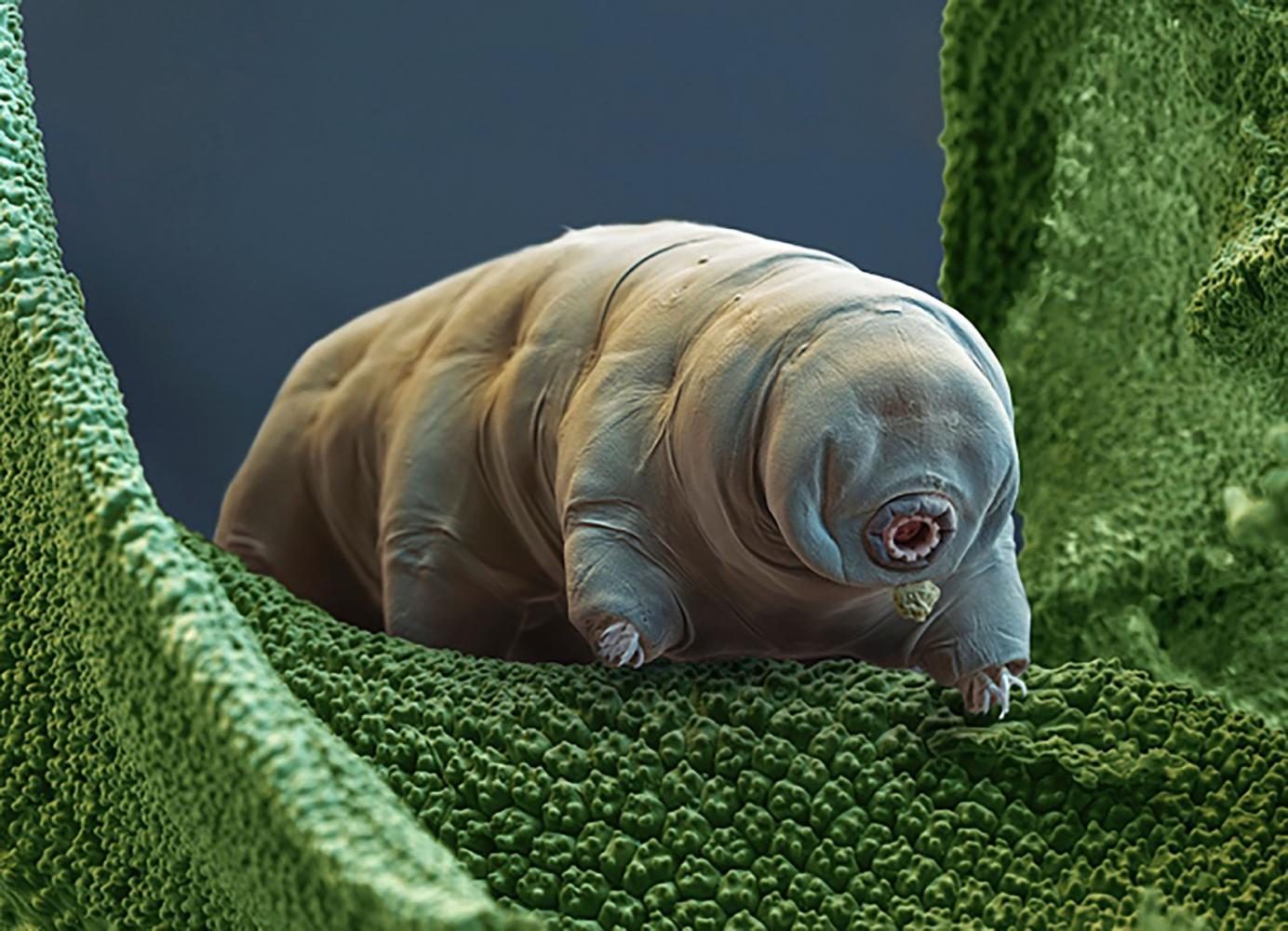Instructor Magnifies Little-Known Organism
May 3, 2017
Photo by: Courtesy of Nature.com
While microscopic, the tardigrade can withstand extreme conditions and still live.
Dr. Carl Johansson, biology instructor at Fresno City College is studying the toughest living species on Earth.
It isn’t the largest or even the strongest in muscle mass; in fact it’s so small, you need a microscope to see it.
Tardigrades, also known as “water bears” for their bodily motions, are arguably more durable than the infamous cockroach and are the first animals to survive in space with no protection.
The “American Scientist,” a magazine published by the Scientific Research Honor Society, reports that surviving such extreme environments suggest that tardigrades have a very healthy DNA repair system.
The microscopic animals also have the potential to live for hundreds of years and can quite literally come back from the dead.
Yet, little is known about these tiny super soldiers. Since its discovery by German zoologist Johann August Ephraim Goeze in 1777, there have only been a few thousand scientific journals published about these creatures.
Fresno City College students, thanks to Johansson, are getting opportunities to join in the research of this tough species. Johansson is incorporating FCC students into his research team.
He does not discriminate when it comes to choosing which students join the trek of discovering the potential scientific benefits of tardigrades. In the past, he had chosen students majoring in nursing, fashion and film.
“I want people who are inquisitive and excited,” Johansson said.
He chooses them based on their genuine interest, merit and drive. He says students who are committed to more than just writing off this experience as another bullet point on their resumes are whom he wants to invest in. Some FCC students currently working with him are Aleena Habib, Rick Holmes and William Osle.
There is a lot of potentials in finding out more about these “water bears” for not only science but for people. Tardigrades are able to live for hundreds of years because they dry themselves out into a husk and come “alive” again after being rehydrated.
This period without water suspends their life, has no effect on its actual lifespan and stops all bodily functions, making them technically dead.
This state, anhydrobiosis, is common for tardigrades to enter several times a year, according to the “American Scientist.”
According to Johansson, tardigrades can take in and digest harmful crop killing organisms and remain unaffected. After being digested by tardigrades, these pathogens will have remained unchanged as well.
The potential danger of this is that these micro animals have been found all over the world. Without more knowledge on tardigrades, we may be vulnerable to their effects on our food source worldwide.
Professor Johansson says he aspires to be the catalyst in his students’ lives — that will engage their interest and passion in science as his predecessor, the late Robert Winter who was a professor at Fresno City College, was for him.
“Science is magic to me,” Johansson said. “I don’t see why anybody reads or watches science fiction when the real thing that actually happens is far more spectacular and interesting, and it actually happens.”
Tardigrades and their abilities are a prime example of real life science being better than fiction, Johansson said.
He wants students to not only be more free in pursuing science, but to not be afraid to know more about it. Johansson said that with science comes a knowledge that would aid students discover whether, “people are trying to steal your money or they’re actually interested in improving your life.”
“I owe Fresno City College this huge debt of gratitude,” Johansson expressed. “The only thing I can do is try to pay that back by providing opportunities and demonstrating that to our current students.”
And so far, Johansson is fulfilling his debt.
“He talked about everything with such enthusiasm [in Biology 3],” said student-researcher Aleena Habib about her mentor. “My passion for school and science came back and he saw that.”
When Johansson lectured on tardigrades during one of Habib’s classes, she became enthralled with the “water bears.”
“I started looking up information about them, collecting moss samples from random places, and spending hours during my weekends trying to find them under the scope,” Habib said. “And I wasn’t even hired yet.”
So when he offered Habib the job, she jumped on the chance and became one of the few people in the world researching tardigrades.
“The opportunity that Professor Johansson has given me, and the other employees at the lab is huge and amazing,” she said. “I’m really proud to be a part of this.”
